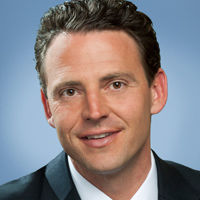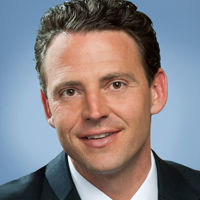
Our Modern-Day Crisis
I admit I was nervous. I didn’t share this with any of the heavily armed Marines standing around me. I had been assigned to the machine gun turret on an armored Humvee as we prepared to cross the border from Kuwait into Iraq. I knew I was trained and ready for what lay ahead, but I also knew that not all of us would return. The impatient and slightly anxious part of me was ready to load up and head into Iraq. I wondered, what was taking so long? Why were we delayed again? Then I heard the tragic news. A Marine had just killed himself in the chapel. I knew we would not all return, but I never imagined we would not all leave. On March 8, 2004, Private First Class Matthew Milczark, a former high-school homecoming king who was then 18 years old, became the first San Diego-based casualty of the 2004 buildup. While we prepared to leave the relative safety of Camp Victory Kuwait and head into the war zone of Iraq, he went into the chapel and took his own life.
Today, with two wars winding down, most people are ready to put them in the past and focus on the future. But a recent Department of Defense report should awaken us to realities we cannot ignore. In 2012, more service members committed suicide than were killed in combat in both Iraq and Afghanistan combined. In 365 days, 349 of the bravest and finest members of our society took their own lives. This represents the highest total since the military started tracking suicides. The Marine Corps alone saw a 50 percent increase from 2011. The statistics mask the heartbreaking personal tragedy of every life lost. Iraq and Afghanistan war veterans are suffering from depression, post-traumatic stress, and often alcohol or substance abuse. Our Secretary of Defense called it an epidemic. I see it as a moral outrage.
If we have the money to send young men and women to war, then we can certainly find the money to care for them when they return home. But at a deeper level, if we have the moral authority to ask our citizens to go into combat, then we have a moral obligation to care for them when they return. It speaks directly to our values as a country and how much we truly honor military service.
San Diego has the highest concentration of veterans in America, according to the VA. We are fortunate to have many committed groups working diligently to help our veterans.
Veterans Village of San Diego has been helping those who served get off the streets and on their feet since the Vietnam Era. With funding from the County of San Diego, in partnership with Mental Health Systems and 2-1-1 San Diego, they operate a “courage to call” hotline that matches those facing difficulty with a trained veteran to get them the help they need. The San Diego Veterans Coalition is emerging as a model effort to coordinate veteran service providers in the region. And former Admiral Ronne Froman started Reboot to help those getting out become better prepared for civilian life.
Nationally, the Veterans Administration has opened a crisis hotline and is trying to change the ways we take care of those who served, but it is not enough. The military must create a culture that encourages those in need to seek help. It needs pathways to identify soldiers suffering from mental illness and provide the help they need without impacting their career advancement. Congress actually had a partisan debate on the GI Bill for the 21st century, with some elected officials arguing publicly against giving college benefits to combat veterans because they might feel comfortable to leave the military. This has to change.
When we finally got on our convoy and crossed the border into Iraq, I quietly repeated the 23rd Psalm, which describes walking through “the valley of the shadow of death.” We are losing hundreds who made it through that valley only to return home and confront an enemy they couldn’t overcome in mental health problems, substance abuse, and despair. Some never even took the first step—like Matthew Milczark. He is buried next to his grandmother and grandfather in a small cemetery near his birthplace. His parents have the enduring curse of outliving their child. A town whose population of 200 was rocked by this tragic death is looking for answers. A nation that owes its veterans the very best is falling short. We have to do better.
PARTNER CONTENT





















